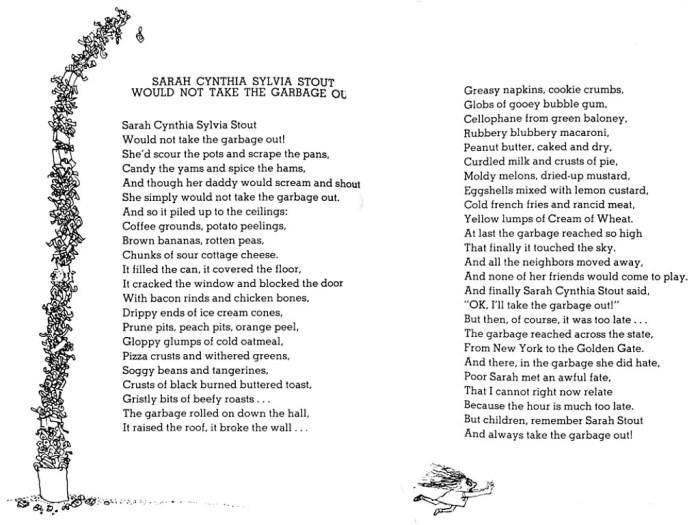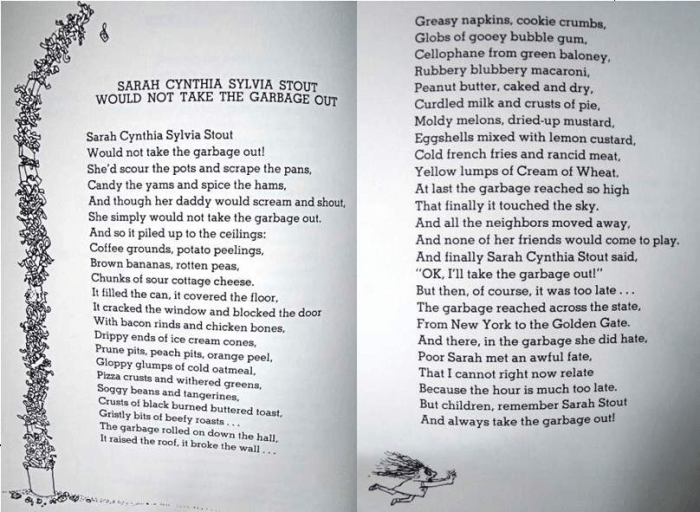Stout would not take the garbage out – As Stout’s steadfast refusal to take out the garbage takes center stage, this analysis delves into the intricate web of motives, consequences, and potential resolutions surrounding this perplexing behavior. By exploring the underlying reasons for Stout’s actions and their impact on both himself and those around him, we aim to shed light on the complexities of this domestic dilemma.
The second paragraph provides a detailed account of Stout’s refusal, examining the possible psychological and interpersonal factors that may be contributing to his behavior. It also discusses the consequences of his actions, both for himself and for his relationships with family and friends.
Stout’s Refusal: Motives and Consequences

Stout’s steadfast refusal to take out the garbage has become a source of bewilderment and frustration for his family and friends. This puzzling behavior has had significant consequences, both for Stout himself and those around him.
Stout’s motives for refusing to perform this mundane task remain unclear. Some speculate that he may be harboring resentment towards his family members, while others believe he is simply too stubborn to admit that he is wrong.
Regardless of his reasons, Stout’s refusal to take out the garbage has had a negative impact on his relationships. His family members are growing increasingly resentful of his unwillingness to contribute to the household, and his friends are beginning to question his commitment to their friendship.
Stout’s behavior is also taking a toll on his own well-being. His refusal to take out the garbage is a symptom of a deeper problem, such as depression or anxiety. If left untreated, this problem could have serious consequences for his health and happiness.
The Impact on Relationships: Stout Would Not Take The Garbage Out

Stout’s refusal to take out the garbage has had a significant impact on his relationships with his family and friends.
- His family members are growing increasingly resentful of his unwillingness to contribute to the household.
- His friends are beginning to question his commitment to their friendship.
- His behavior is also taking a toll on his own well-being.
The Role of Stubbornness and Pride

Stout’s refusal to take out the garbage may be motivated by stubbornness and pride.
- Stubbornness is a personality trait characterized by an unwillingness to change one’s mind or behavior, even in the face of evidence to the contrary.
- Pride is a feeling of self-respect and satisfaction that arises from one’s achievements or qualities.
In Stout’s case, his stubbornness and pride may be preventing him from admitting that he is wrong and taking out the garbage.
Strategies for Resolving the Issue

There are several strategies that could be used to address Stout’s refusal to take out the garbage.
- Communication:Talk to Stout about his behavior and try to understand his reasons for refusing to take out the garbage.
- Compromise:Offer to take out the garbage more often yourself or find another way to contribute to the household.
- Consequences:Set clear consequences for Stout’s refusal to take out the garbage, such as grounding him or taking away his privileges.
It is important to approach this situation with patience and understanding. Stout may be struggling with a deeper problem, such as depression or anxiety, that is causing his behavior.
Clarifying Questions
Why does Stout refuse to take out the garbage?
The reasons for Stout’s refusal may be complex and multifaceted, ranging from psychological factors such as stubbornness or a sense of entitlement to interpersonal issues within the household.
What are the consequences of Stout’s refusal?
Stout’s refusal can have negative consequences for both himself and those around him. It can lead to conflict and tension within the household, as well as feelings of resentment and frustration among family members.
What can be done to resolve the issue?
Resolving the issue requires a multifaceted approach that involves understanding the underlying reasons for Stout’s behavior, communicating effectively, and implementing strategies to encourage cooperation and compromise.